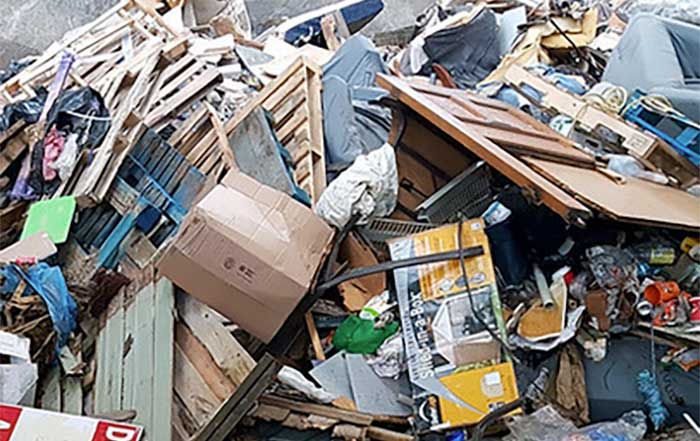As the Earth continues to grapple with the pressing environmental challenges of our time, individuals, communities, and organizations are taking proactive steps to mitigate the impact of waste on our planet. From the United Nations' Global Waste Management Outlook to the European Wilderness Society's Global Recycling Day, a multitude of initiatives are underway to promote sustainable practices and a circular economy. This article delves into the various efforts being made globally to reduce, reuse, and recycle, highlighting the significance of these actions in the context of climate change, plastic pollution, and broader environmental awareness.
Global Waste Management Outlook
The United Nations Environment Programme (UNEP) has issued a comprehensive report, the Global Waste Management Outlook 2024, which underscores the urgent need for drastic reductions in waste generation. Municipal waste is projected to rise by two-thirds, and its costs are expected to almost double within a generation. This report emphasizes the critical role of waste management in preserving Earth's resources and safeguarding our future. It highlights the importance of recycling in reducing CO2 emissions by about 700 million tonnes each year, with forecasts predicting a possible increase to 1 billion tonnes by 2030.
Sustainability Trends for 2024
The decade of climate disclosure is a key trend for 2024, emphasizing the growing urgency for transparent environmental reporting. This trend is closely linked to low-carbon business models, where companies are transforming their operations to align with net-zero objectives. Greenwashing scrutiny intensifies, with a focus on authentic sustainability claims and the impact of heightened scrutiny and upcoming regulations. Leveraging technology for stakeholder engagement is another significant trend, reshaping how organizations engage with their stakeholders on sustainability issues.
Earth Day 2024
Earth Day, celebrated on April 22, 2024, focused on the theme "Planet and Plastic," aiming to raise awareness of the health risks of plastics and to end all single-use plastics. The theme underscored the need for a robust United Nations Treaty on Plastic Pollution and the phase-out of fast fashion. The event also highlights the importance of reducing, reusing, and recycling plastics, as plastics take up to 450 years to decompose in landfills. Various initiatives, such as litter clean-ups and awareness programs, are being organized to combat plastic pollution and promote sustainable practices.
Global Recycling Day 2024
Global Recycling Day, celebrated on March 18, 2024, spotlights the efforts of individuals, organizations, and initiatives driving change through recycling. The theme for this year is #RecyclingHeroes, recognizing the significant role of recycling in preserving Earth's resources and safeguarding our future. The Global Recycling Foundation reminds us that recycling reduces CO2 emissions by about 700 million tonnes each year, with forecasts predicting a possible increase to 1 billion tonnes by 2030. Recycling is an essential component of the circular economy, which prioritizes resource efficiency, waste minimization, and environmentally friendly production techniques.
World Environment Day 2024
World Environment Day, celebrated on June 5, 2024, is a global platform for raising awareness and taking action on critical environmental issues. This year's event encourages individuals, communities, and organizations to adopt sustainable practices, reduce waste, and promote environmental conservation. Various activities, such as community events, clean-up campaigns, and educational seminars, are being organized to raise awareness and inspire positive change. The event also emphasizes the importance of conserving water and energy, supporting sustainable food choices, and advocating for policy changes to promote a greener and more sustainable future.
Electronic Waste (E-Waste) Management
The Global e-Waste Monitor 2024 reports that electronic waste is rising five times faster than documented e-waste recycling. If countries could bring the e-waste collection and recycling rates to 60% by 2030, the benefits would include significant reductions in greenhouse gas emissions and the conservation of natural resources. This report underscores the critical need for effective e-waste management to mitigate the environmental impact of electronic waste.
Top 5 Sustainability Trends of 2024
Top 5 sustainability trends for 2024 include the following:
1. Clean Energy Transition: Companies are focusing on clean energy solutions to achieve net-zero emissions.
2. Sustainable Supply Chains: Organizations are transforming their supply chains to ensure sustainability and reduce environmental impact.
3. Artificial Intelligence (AI) in Operations Management: AI is being used to optimize operations, improve efficiency, and enhance sustainability.
4. Circular Economy: The circular economy model is gaining traction, emphasizing resource efficiency, waste minimization, and environmentally friendly production techniques.
5. ESG Policies: The doubling of ESG policies from 614 in 2020 to 1225 in 2023 highlights the growing importance of environmental, social, and governance (ESG) practices in business operations[5].
2024 Environmental Initiatives Timeline
Global Recycling Day
Theme: #RecyclingHeroes
Earth Day
Theme: Planet and Plastic
World Environment Day
Global platform for environmental action
UN Global Waste Management Outlook
Emphasizes urgent need for waste reduction
Global e-Waste Monitor
Reports e-waste rising 5x faster than recycling
Top 5 Sustainability Trends
- Clean Energy Transition
- Sustainable Supply Chains
- AI in Operations Management
- Circular Economy
- ESG Policies
Conclusion
The collective efforts of individuals, communities, and organizations are crucial in addressing the pressing environmental challenges of our time. From reducing waste and promoting recycling to adopting sustainable practices and advocating for policy changes, these actions are essential for creating a more sustainable and resilient future. As we navigate the complexities of climate change, plastic pollution, and environmental degradation, it is imperative that we continue to innovate, collaborate, and take proactive steps to protect our planet for present and future generations.
By embracing the principles of sustainability, stewardship, and harmony with nature, we can create a greener, healthier, and more sustainable world. Every small action counts, whether it is making simple changes in daily habits, advocating for policy changes, or actively participating in community initiatives. Together, we can create a brighter future for our planet.

